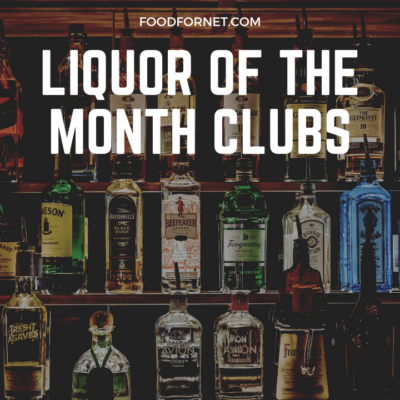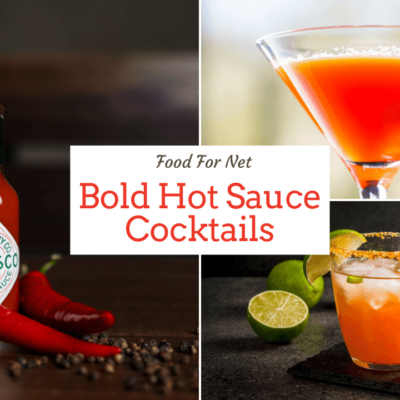
Alcohol seems to be the subject of endless controversy. We’ve been drinking fermented beverages for centuries, yet the debate about risks versus rewards is as strong now as it ever has been. Plenty of people claim that alcohol should be avoided entirely, while others think that it has some benefits when consumed in moderation. So, what about wine? Is wine good for you?
You’ve probably already heard about some of the potential benefits of wine, like how it might help your heart, reduce inflammation, and help you to live longer. Some of those effects may come from the antioxidants present, including the famous resveratrol. Others may have a different source.
Besides, many of us clearly love the taste of wine and how it makes us feel. That’s partly why there are so many wine of the month clubs and why we pair wine with countless types of food, including cheese and chocolate.
Is Wine Good For You?
- How Wine Could Be Beneficial
- Is Wine A Good Source Of Antioxidants?
- Does Wine Help You Sleep?
- Does Wine Help With Anxiety?
- Other Risks And Problems With Wine
- Which Type Of Wine Is Best?
- What About Alcohol Free Wine?
- How Much Wine Should You Be Drinking?
- Final Thoughts
How Wine Could Be Beneficial

Let’s begin with the benefits of wine. That’s why you’re here, isn’t it?
Firstly, we know that you can drink wine regularly and be healthy. Plenty of people can attest to that and red wine is even an important part of the Mediterranean diet. The effect isn’t so surprising either because wine does contain antioxidants. Plus, even the alcohol in wine may have surprising benefits (as long as you’re not overdoing it).
Some of the main benefits can be seen in the sections below.
It Relaxes You
Who here uses a glass of wine as a way to relax? Doing so is popular, which isn’t surprising, as wine really does help you wind down.
This happens because wine acts as both a depressant and a sedative. The effect can be as strong as some antianxiety medications. Plus, as many of us know, a glass of wine boosts makes it easier to avoid thinking about your problems.
This relaxant effect may be good for your health too, as always being stressed and in a high state of alert can cause harm – potentially increasing your risk for disease.
It Can Improve Your Heart Health
Wine, particularly red wine, is often linked to improved heart health. It’s thought to improve blood pressure, decrease your LDL cholesterol levels, increase HDL cholesterol, and have many more related benefits.
Interestingly, it’s not clear what drives all these benefits. The antioxidants may be important, particularly resveratrol.
There’s also the chance that the alcohol content of the wine plays a role. After all, some studies suggest that moderate alcohol intake decreases heart disease risk, regardless of the type of alcohol consumed.
It Is A Social Lubricant
There’s a reason that wine is served during parties and many other events. The alcohol in the wine helps to loosen people up and makes them feel more comfortable. Plus, wine is often seen as a more refined choice than spirits or beer, so it can be found at many types of events.
This effect means that alcohol often helps people connect.
The benefit of this goes beyond simply having a good time. People need connections with one another for their mental health. These connections are what make us feel like we’re part of a whole, that we matter.
We even know that loneliness and being isolated from others increase the risk of serious health conditions. So, what’s the harm in raising a glass and joining in with your friends?
Might Improve Health In Other Ways
Wine has been linked to other benefits too. For example, one study found that wine appeared to decrease the risk of Alzheimer’s disease. That research had its limitations, as it just focused on women and couldn’t test cause and effect. Still, it shows that wine may have some underrecognized features.
Moderate wine consumption has even been linked to longer life. How’s that for good news?
Is Wine A Good Source Of Antioxidants?

Discussions on the benefits of wine often focus on the antioxidants, particularly polyphenols like resveratrol. There’s no denying the importance of antioxidants. These compounds help to keep oxidative stress in check and reduce free radical damage.
Doing so may lower the risk of many diseases, while also promoting heart health and helping us to live longer. Indeed, countless studies illustrate the importance of eating antioxidant rich foods regularly.
The presence of antioxidants in wine strongly suggests that wine is healthy.
The claim is true, to a degree, as you do get some antioxidants in your wine (mostly in red wine, as white wine is low in antioxidants). But, the antioxidant content of red wine isn’t as high as you might expect.
Some researchers even say that it’s not possible to get therapeutic quantities of resveratrol from red wine. There just isn’t enough of the antioxidant present to have much effect at all.
There are other antioxidants present too, but the amounts still aren’t amazing. Instead, when you look at similar quantities, you’re getting roughly the same amount of antioxidants in your wine as in many fruits and vegetables.
Don’t forget about grape juice either. While this is often high in sugar, it is made from grapes, so it contains many of the same compounds as wine.
In the end, if you want more antioxidants, you should increase your fruit and vegetable intake. Fruits and vegetables contain many more healthy nutrients and don’t have the same concerning effects that you see with wine.
So, while the antioxidants in wine might have some pluses, they’re not as powerful or as unique as they seem. Antioxidants alone certainly aren’t a good reason to increase your wine intake.
Does Wine Help You Sleep?
Wine is often used as an easy over-the-counter sleep aid. It does have that effect too, helping us to calm down and drift off to sleep easier.
Yet, alcohol isn’t a great idea for sleep at all.
The first problem is dependence. The more you use alcohol as a tool to sleep easier, the harder it becomes to fall asleep without it. You also build up a tolerance, so it takes more wine to have the same effect. It’s easy to end up slowly increasing the amount you drink without realizing it.
This pattern isn’t good for your alcohol consumption nor for your ability to sleep.
The other problem is that alcohol doesn’t help with your sleep quality. While you might drop off to sleep faster, the end of your sleep cycle ends up disrupted, so you wake up groggy.
Disrupting your sleep cycle like this can be a serious problem, as there’s a strong link between good-quality sleep and health. This means that you’ll see more benefits by avoiding wine late at night.
Try having water instead. That way you’re hydrated before you go to bed.
Does Wine Help With Anxiety?

Anxiety is another interesting topic to talk about – and wine has a similar positive/negative effect here as it does with sleep.
On one hand, alcohol does make you less anxious. Social situations become easier to handle, as you’re less afraid and it’s easier to enjoy yourself. However, the relaxant effect of alcohol doesn’t last long. When it does wear off, your anxiety is likely to be the same or even worse than it was before.
Some people find that they’re very anxious after drinking, sometimes for hours later.
Also, by using alcohol to avoid anxiety, you’re not tackling your emotions and your fears. Avoidance tactics like this are rarely helpful. In the long-term, they tend to make your anxiety worse rather than better.
Other Risks And Problems With Wine
Drinking Too Much Is Harmful
Wine may have its benefits, but the dangers of alcohol are far too obvious as well. Alcohol consumption has been linked to plenty of problems, including increased risk of cancer, heart disease, liver problems, and neurological disorders, to name just a few.
High alcohol consumption can increase the risk of obesity too, not in the least because alcohol decreases inhibitions, making it much easier to overeat. Then there’s alcohol addiction, which can easily ruin people’s families and their entire lives.
But, let’s be clear, you don’t need to be an alcoholic to be harmed by alcohol. Even regularly going over the recommended intake could increase your risk of health problems.
It’s Easy To Overdo It

To get the benefits we discussed earlier, you need to keep your alcohol intake at a reasonable level. This often means having no more than one standard drink per night for women or two for men.
Those numbers alone show how easy it is to drink too much – many of us regularly have two or more drinks over a meal.
To make matters worse, those numbers are based on standard drinks. For wine, a standard drink is roughly a 5-ounce pour (the amount varies a little depending on the alcohol content of the wine). Few of us measure out our wine at home, so our pours are often larger than 5 ounces.
Don’t forget that alcohol often decreases inhibitions and self-control. This means that the more you drink, the easier it is to say yes to one more glass of wine.
Social pressure might influence you to drink more than you mean to as well. Even if people aren’t trying to pressure you into drinking, it can be difficult to say no when everyone around you is having a glass of wine.
Similarly, it’s easy to keep going if everyone is eating and drinking, and there are multiple bottles of wine open on the table. Such situations often mean that even the best intentions in the world aren’t enough to stop you from drinking more than you planned to.
Now, doing this once every so often isn’t a big deal. The problem is when you’re starting to overdo it regularly.
Wine Often Has Multiple Effects
As we saw with the discussions on anxiety and sleep, wine doesn’t just have a single effect. Instead, you get multiple effects, which sometimes contradict each other.
Take social situations, as an example.
Alcohol makes it easier to be social, there’s no denying that. Having a little to drink can take the edge off your anxiety and stress, making it easier to enjoy yourself. The alcohol also lowers your inhibitions, which helps to open up new opportunities.
Yet, as most of us know, alcohol can make social situations much worse too. Decreased inhibitions mean that we sometimes say or do things that we probably shouldn’t. We may embarrass ourselves and those around us. Indeed, drinking too much too regularly can end up harming our friendships.
There’s also that ever-present risk of relying on alcohol. You don’t want to get to the point where you need alcohol just to feel normal.
It’s very easy to focus on the desirable effects of wine, like how it helps you de-stress, how it makes being social easier, and the buzz it gives you, while downplaying all of the risks.
Alcohol May Stop Healthier Practices
As we mentioned earlier, wine can help you to de-stress, to get to sleep faster, and to feel more comfortable in a crowd. It often helps to stop you from over-thinking as well, making it easier to simply switch off for a while.
Those effects are all useful every so often.
The problem is that you’re often drinking wine instead of healthier practices. For example, drinking every time you feel low means that you never learn how to be okay with your emotions and how to make yourself better independently.
Drinking to relieve stress is another example. What about taking a walk, doing some yoga, or soaking in a long hot bath instead? All of those approaches can help you wind down in a calmer alcohol-free manner.
Alcohol Promotes Unhealthy Habits
Alcohol doesn’t just take the place of healthy practices. It can promote plenty of unhealthy ones as well. Food is an obvious example, as self-control is often more difficult when you’ve been drinking. You might end up eating snacks that you would normally avoid or completely blowing your diet.
You may find that other healthy habits slip too. For example, drinking often can be linked to getting less exercise, to spending more time indoors, and to smoking more.
Those are all generalizations, of course, as you can still have a healthy lifestyle and drinking regularly. Even so, being aware of how alcohol consumption influences your other habits can help you to avoid any serious issues.
Which Type Of Wine Is Best?

Red wine seems like the obvious first choice when you’re looking for the benefits of wine. After all, it does contain more antioxidants, including higher amounts of resveratrol.
Still, as we mentioned earlier, the antioxidants aren’t as big of a deal as you might expect. Red wine also contains higher amounts of sulfites, a type of preservative.
These sulfites can cause problems for some people, particularly those sensitive to migraines or asthma. If you’re sensitive to either of those issues, white wine could be a safer choice for you.
What About Alcohol Free Wine?
You can also find alcohol free wine.
Some products are simply grape juice that is marketed as alcohol free wine, but the best ones still go through the entire wine making process and are dealcoholized at the end.
Alcohol free wine still contains most of the important compounds you find in regular wine, including the antioxidants. This gives you access to most of the potential benefits of wine, without the most serious risks. That’s a powerful outcome.
Plus, when you remove alcohol from your wine, the calorie content goes down as well. This makes alcohol free wine a better choice for anyone watching their weight.
Research has even confirmed that non-alcoholic red wine has stronger health effects than alcoholic red wine. More research is needed, but still… a high-quality alcohol free wine can taste just like the real deal, so why not give one a try?
Oh, and there are even some alcohol free wines that manage to keep their sulfite levels very low as well.
How Much Wine Should You Be Drinking?
Most studies that show benefits suggest no more than two drinks per night, often just one (particularly for women). More than two a night means increases the risk of harm and may negate many of the benefits.
Keeping to those levels can be difficult, as many of us enjoy a couple of glasses of wine over the course of a meal – or perhaps one with dinner and another one or two later in the evening.
One way around that problem is to choose some nights of the week where you don’t drink at all. This helps to balance things out.
Another approach is to set limits for yourself. For example, you might only ever buy two bottles of wine per week and restrict yourself to a single glass of wine any time you go out. There might be occasions when you break those rules, like at a wedding. Even so, keeping to them most of the time may help you to keep your alcohol consumption at a good level.
Final Thoughts

The intersection between wine and health is complicated. On one hand, wine does offer some clear benefits. It helps us feel better, decreases stress, and may even improve heart health.
There are also clear risks to wine, including all the problems that come with drinking too much. Plus, it’s easy to overdo it with alcohol. Many of us underestimate the amount we drink or rely a little too heavily on alcohol to reduce our stress or improve our mood.
In the end, the amount of wine you drink matters more than anything else.
If you keep your drinking at reasonable levels, then yes, wine could easily improve your health. And, at the very least, you won’t be causing serious harm. However, if you find that you regularly reach for a third or fourth glass, it may be time to step away from wine for a bit or put some serious restrictions in place.
After all, the benefits we’ve highlighted here aren’t exclusive to wine. Antioxidant rich foods offer many of the same features, without the risk that comes with too much alcohol. Plenty of other foods help to promote heart health too.
Frequently Asked Questions
Is Wine Gluten Free?
None of the ingredients traditionally used in wine making contain gluten, making it an easy gluten free choice. However, it’s still important to pay attention to the ingredients label, as some companies use additives and these sometimes contain gluten.
Does Wine Expire?
Despite being famous for aging, wine doesn’t always last as long as you might think. Most modern wines are designed to be consumed within a few years of being released. You can generally keep them unopened for a few years beyond this, but they won’t last much beyond this.
The exception is fine wines that are designed to be aged. These tend to last much longer, perhaps even decades.
The important thing is to be careful with how you store the wine. It will last longest if you keep it in a cool and dry place. Also remember that once the wine is opened, you have a relatively short time to enjoy it. For regular table reds and whites, we’re normally talking about three to five days after the wine was opened.
Can Pregnant Women Drink Wine?
Traditional advice says no, pregnant women shouldn’t drink wine. This is because there is no known safe amount or time for drinking alcohol during pregnancy. Plus, drinking during pregnancy can cause many serious negative effects for the baby.
However, the science isn’t as cut and dry as you might expect (partly because experimenting with the effects of different amounts of alcohol would be extremely unethical). Some women do choose to drink small amounts of alcohol during pregnancy without issue. The occasional doctor even says the risk of doing so is minimal.
Ultimately, you’ll need to decide for yourself. While drinking small amounts of alcohol mightn’t cause any harm at all, the risk is still there. You might prefer to err on the side of caution and avoid wine entirely throughout your pregnancy.
Does Wine Freeze?
Because wine has a lower alcohol content than spirits, it will freeze in a standard freezer – normally in around five hours or so. Thankfully, freezing wine won’t ruin it. If you thaw the wine out slowly in the fridge, it should still be fine for drinking and cooking.
That said, freezing wine isn’t a great idea. Doing so tends to decrease the wine’s quality and there’s also the risk that the glass bottle explodes in the freezer (particularly with sparkling wines – these can make a huge mess).
Is Wine Vegan?
Wine is often suitable for vegans, but not always, as some of the products used during the fining process can be derived from animals. Companies don’t need to state whether this is the case or not, so you won’t be able to tell from the bottle.
The safest approach is to look for wines that are marketed as being vegan friendly, particularly those from companies that care about vegan values. Doing so is much better than choosing a random bottle of wine from the store.

















 Is Nutritional Yeast Good For You?
Is Nutritional Yeast Good For You?
Leave a Reply